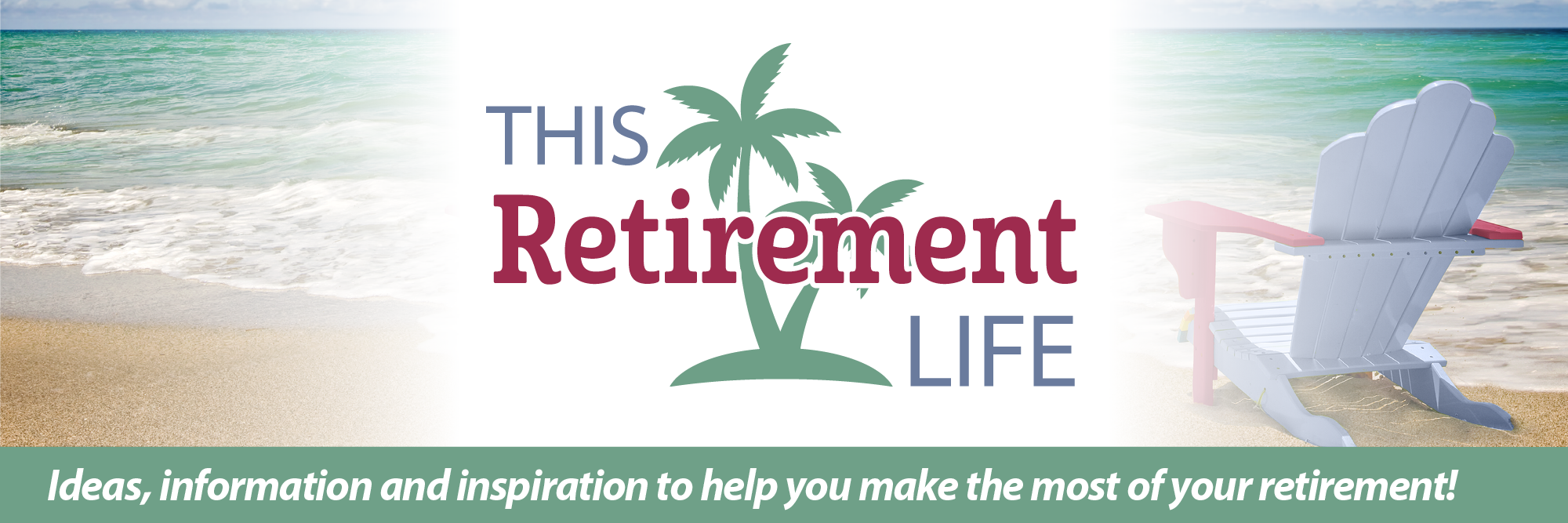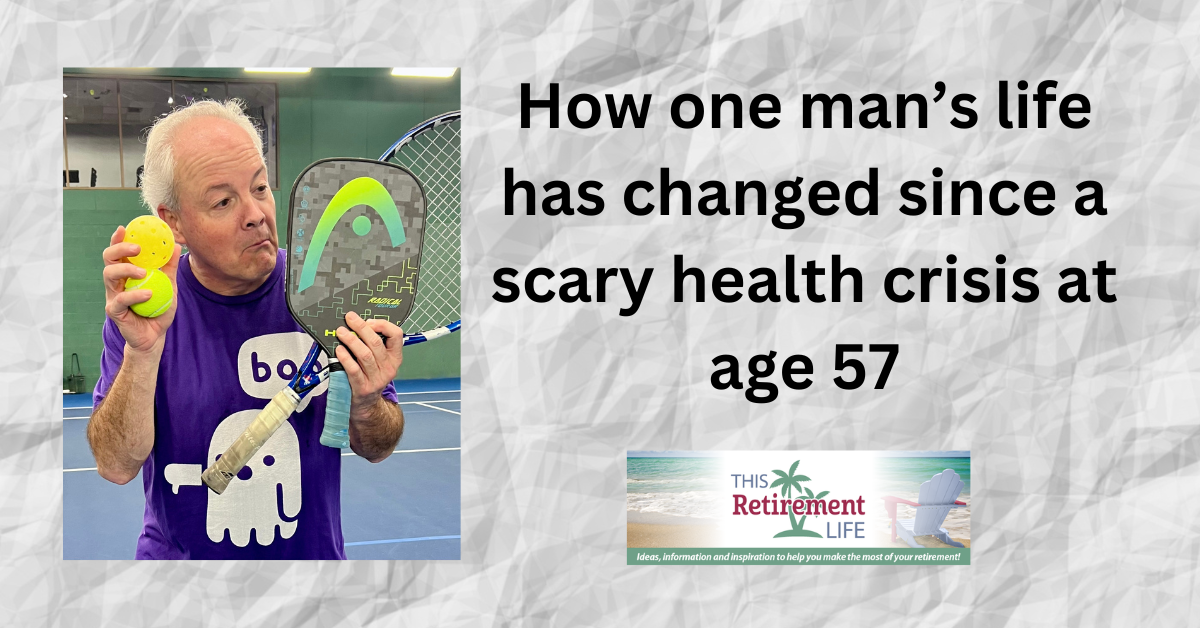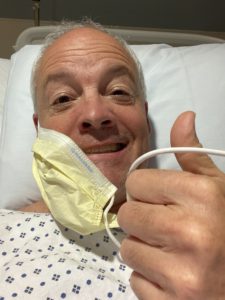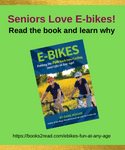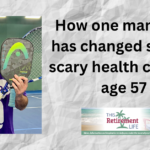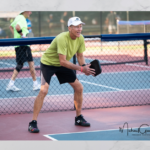
Note: Grant Rampy is a marketing professional who lives in Warrenton, Virginia. We first reported on Grant in a story in October 2021 after he had recently experienced the warning signs of an impending widowmaker heart attack at the relatively young age of 57.
Now, more than two years since his close call, Grant says he’s alive and well and seemingly healthier than ever. We thought it might be interesting to look back on Grant’s journey to see what’s changed in his life and what we can learn from his experience. Below is a recent Q&A interview with Grant.
Q: It doesn’t seem like that long ago, Grant, that you were talking about the way your life turned upside down in August of 2021. That was a dicey few weeks you experienced.
A: I look back on what occurred back then and feel like it all happened to someone else, but then I see the hospital gown I keep on a hanger in my basement. It’s there as a reminder that it was me on that operating table. This will sound a little crazy, but I also have a purple “Personal Items” plastic bag stapled to the wall that I took with me on the day I left the hospital after the unexpected two-day stay. A woman walking out at the same time had just lost her husband to Covid and was carrying all his effects. It hit me that, had I not received help in time, that could have been one of my family members.
Q: In the two years since you failed a stress test and learned you had two 90 percent blockages around your heart, how has your life changed?
A: I’ll shoot straight and say I’ve made a few adjustments to my diet, but my life isn’t all that different. Two stents were placed in my left anterior descending (LAD) artery to open the clogged arteries that would have eventually closed completely, cutting off the supply of blood to my heart muscle, killing me almost immediately. Recovery was also quick since my cardiac surgeon and his team didn’t have to crack me open; they did all their work by feeding cables through small incisions in my right wrist and groin. I went home and was exercising again in less than a week.
Q: So you’ve adjusted your diet and basically carried on living as before?
A: Right, though I have cut way back on processed meats and salty chips. I had a bad habit of munching on a big plate of microwaved nachos after my daily afternoon workouts, so that had to change. My cardiologist also put me on a daily dose of baby aspirin to thin my blood and a statin to lower my bad cholesterol.
Q: After discovering your major blockages, was your doctor able to trace the root of the problem to any issue or issues in particular, like heredity or fried foods and the like?
A: I wish someone could tell me, “Hey, if you hadn’t been eating so many Big Macs and KFC, this never would have happened,” but I think it’s a bigger ball of wax. I’ve had work stress over the years; there’s been a lot of work travel with careless eating and drinking on the road; I’ve never hesitated to munch on Oreos and a big bowl of sugar cereal; I enjoy the occasional Big Mac and I love a good Chick-fil-A chocolate shake. I also have to be straight up about the fact that I’ve had an easy-going relationship with alcohol since college. Could that be part of the problem? As for hereditary factors, one of my grandparents had heart trouble in his 70s that eventually led to his death. My trouble hit at age 57.
Q: You may not have solid answers about what caused your problem, but I know you haven’t been shy about communicating the big takeaway from your experience.
A: I feel called to share my story. Most of us know the early warning signs of a heart attack – that you should seek medical attention when you start feeling unexplainable pain in your left arm or an elephant sitting on your chest. But how many people, especially women, realize that strange shoulder and jaw pains are also flashing red lights? In my case, however, the tap on the shoulder was so faint that I could have missed it. It was a combination of a strange tiredness that would come on fast and fade just as quickly after periods of even moderate exertion. With the blahs also came – and this is the only way I can describe it – a voice of doom. Something made me feel like my life was in jeopardy. I tried to push past the voice, even to exercise my way around it, but I was clearly ‘off’ and internally frightened. I knew I should seek medical attention and I’m glad I did. After failing a nuclear stress test (within 90 seconds!), I immediately heard the diagnosis that led to the stenting; the tell-tale information was right there on the paper strip that came spitting out the side of the EKG. Fast forward to late 2023: I’ve enjoyed two extra years I nearly missed, and I may live 20 or 30 more if I play my cards right.
Q: What about your workout routines? You’re still doing them, but have you scaled back on the intensity?
A: Only just a bit. In crushing my workouts a few years ago with extra sets and ‘reps’ (repetitions of exercises) with plenty of sweating, I was probably trying too hard to live like a guy in his 30s. The advice for folks over 50 is that we should get regular, almost daily exercise, but it can be walking and swimming. I’m still lifting, squats, doing sit-ups, and so on, but I’m no longer trying to push to new heights. Thirty minutes of pretty intense exercise four times a week makes me feel alive, brightens my mood, and helps keep my weight in check.
I don’t think we should keep trying to get the body back we had – or wish we had – in our 20s. Most of us carry a few extra pounds that are probably here to stay, but we can do a lot to keep our insides, especially our aerobic and heart health, where it needs to be. Another plus of remaining active is that we’re less likely to need so many meds.
Anyway, I say: Stay busy! Get outside! Cut down back on binge-watching all those great Netflix shows that keep you snacking in front of a screen! …but enough with the preaching. I’m just glad to be above ground, appreciating the second chance I’ve been given. My journey could have ended at 57. Now I’m aiming at 87 – with all my heart.
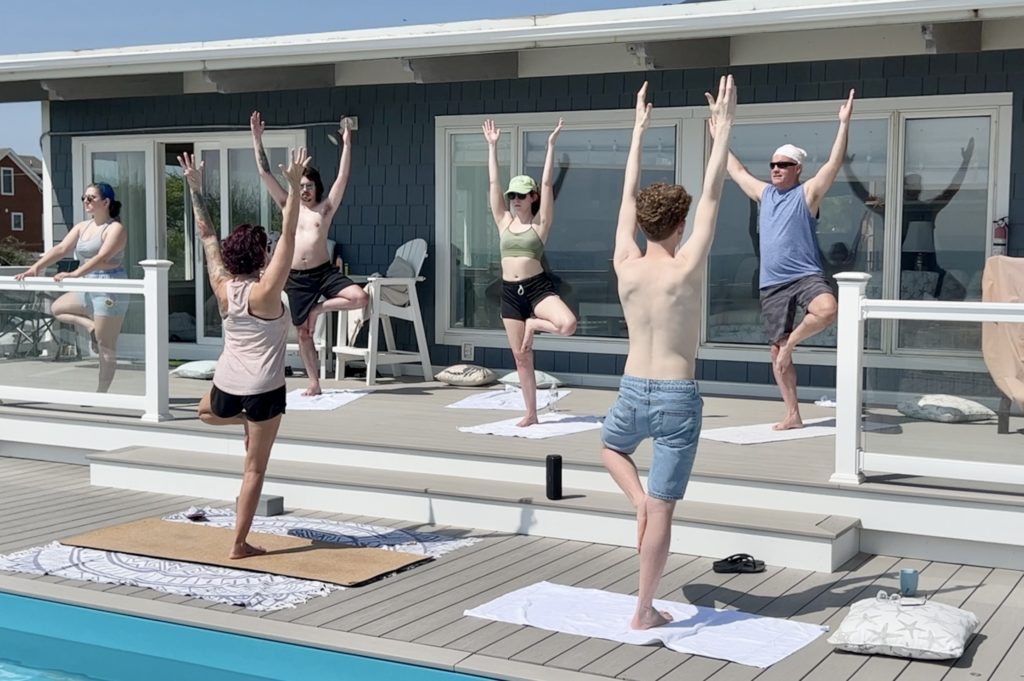
Grant still enjoys exercising and believes it contributes to his better health.
